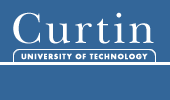
| Academic Calendar |
| Admissions Information |
| Fee Information |
| Policy and Procedures |
| Scholarships |
| About Curtin |
132110 v.2 Bachelor of Engineering (Electrical Engineering), Bachelor of Science (Computer Science)BEng(Curtin) OR BEng(Hons)(Curtin), BSc(Curtin) Introduction |
||||||||||||||||||||||||||||||||||||||||||||||||||||||||||||||||||||||||||||||||||||||||||||||||||||||||||||||||||||||||||||||||||||||||||||||||||||||||||||||||||||||||||||||||||||||||||||||||||||||||||||||||||||||||||||||||||||||||||||||||||||||||||||||||||||||||||||||||||||||||||||||||||||||||||||||||||||||||||||||||||||||||||||||||||||||||||||||||||||||||||||||||||||||||||||||||||||||||||||||||||||||||||||||||||||||||||||||||
Course Structure |
Hrs/Wk |
Credit |
|||
Year 1 Semester 1 |
|||||
| 12331 | v.3 | Foundations of Computer Science 151 | 4.0 | 25.0 | |
| 12742 | v.2 | Electrical Engineering 103 | 5.0 | 25.0 | |
| 1920 | v.6 | Software Technology 151 | 5.0 | 25.0 | |
| 307535 | v.1 | Engineering Mathematics 110 | 5.0 | 25.0 | |
| OR | |||||
| 307536 | v.1 | Engineering Mathematics 120 | 5.0 | 25.0 | |
| 100.0 | |||||
Year 1 Semester 2 |
|||||
| 10163 | v.8 | Introduction to Programming Environments 152 | 4.0 | 25.0 | |
| 12706 | v.2 | Electrical Circuits 104 | 5.0 | 25.0 | |
| 1922 | v.6 | Software Technology 152 | 7.0 | 25.0 | |
| 7161 | v.5 | Mathematics 172 | 4.0 | 25.0 | |
| 100.0 | |||||
Year 2 Semester 1 |
|||||
| 12708 | v.2 | Linear Systems 201 | 6.0 | 25.0 | |
| 12709 | v.2 | Mathematics 277 | 4.0 | 25.0 | |
| 1737 | v.3 | Particles and Waves 101 | 3.0 | 12.5 | |
| 12044 | v.4 | Professional Engineering 103 | 3.0 | 12.5 | |
| 12702 | v.2 | Computer Engineering 103 | 4.0 | 25.0 | |
| 100.0 | |||||
Year 2 Semester 2 |
|||||
| 12712 | v.2 | Linear Systems 202 | 4.0 | 25.0 | |
| 12743 | v.2 | Mathematics 278 | 4.0 | 12.5 | |
| 1744 | v.3 | Structure of Matter 102 | 3.0 | 12.5 | |
| 2519 | v.15 | Systems Programming and Design 251 | 4.0 | 25.0 | |
| 8933 | v.9 | Software Engineering 251 | 3.0 | 25.0 | |
| 100.0 | |||||
Year 3 Semester 1 |
|||||
| 12705 | v.2 | Computer Engineering 203 | 4.0 | 25.0 | |
| 12832 | v.2 | Probability Theory and Random Processes 303 | 4.0 | 25.0 | |
| 12333 | v.4 | Design and Analysis of Algorithms 251 | 3.0 | 25.0 | |
| 12704 | v.2 | Physical Electronics 203 | 5.0 | 25.0 | |
| 100.0 | |||||
Year 3 Semester 2 |
|||||
| 12710 | v.2 | Analogue Electronics 204 | 4.0 | 25.0 | |
| 12711 | v.3 | Electrical Systems 204 | 4.0 | 25.0 | |
| 4533 | v.4 | Database Systems 252 | 4.0 | 25.0 | |
| 8934 | v.7 | Software Engineering 252 | 3.0 | 25.0 | |
| 100.0 | |||||
Year 4 Semester 1 |
|||||
| 12830 | v.2 | Electromagnetics 303 | 5.0 | 25.0 | |
| 12831 | v.2 | Power Systems 303 | 5.0 | 25.0 | |
| 12833 | v.2 | Process Control 303 | 5.0 | 25.0 | |
| 3437 | v.11 | Programming Language Design Concepts 352 | 3.0 | 25.0 | |
| 100.0 | |||||
Year 4 Semester 2 |
|||||
| 12829 | v.2 | Electrical Machines and Drives 304 | 5.0 | 25.0 | |
| 12835 | v.2 | Power Electronics 304 | 5.0 | 25.0 | |
| 12843 | v.4 | Engineering Management 304 | 5.0 | 25.0 | |
| 4521 | v.5 | Computer Communications 252 | 3.0 | 25.0 | |
| 100.0 | |||||
Year 5 Semester 1 |
|||||
| 300786 | v.2 | Renewable Energy Principles 403 | 5.0 | 25.0 | |
| OR | |||||
| 12839 | v.2 | Power Electronics 403 | 5.0 | 25.0 | |
| 302504 | v.1 | Engineering Project 405 | 5.0 | 25.0 | |
| 3442 | v.9 | Computing Project 352 | 4.0 | 25.0 | |
| 4542 | v.7 | Foundations of Computer Science 351 | 3.0 | 25.0 | |
| 100.0 | |||||
Year 5 Semester 2 |
|||||
| 12840 | v.2 | Power System Protection 404 | 5.0 | 25.0 | |
| 12842 | v.2 | Electrical Design 404 | 4.0 | 25.0 | |
| 12861 | v.3 | Renewable Energy Systems 404 | 4.0 | 25.0 | |
| OR | |||||
| 301302 | v.3 | Electric Power Transmission and Distribution 404 | 3.0 | 25.0 | |
| 302505 | v.1 | Engineering Project 406 | 5.0 | 25.0 | |
| 100.0 | |||||
Availability
| Year | Location | Period | Internal | External |
| 2004 | Bentley Campus | Semester 1 | Y |
The information displayed above refers to study periods and locations where the course is available for first time entry. Students are normally only offered or admitted to a course once.
Click here for a printable version of this page
